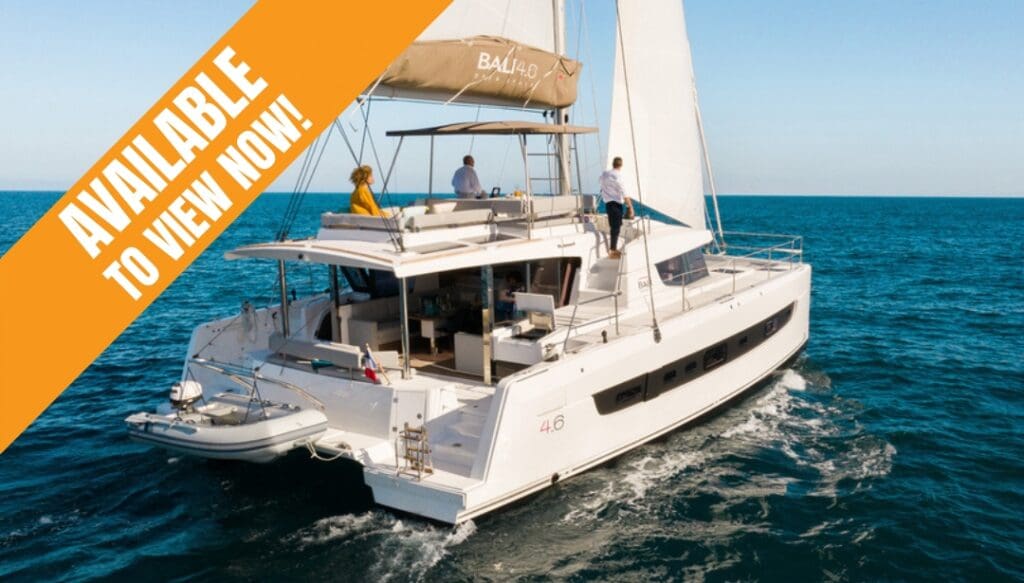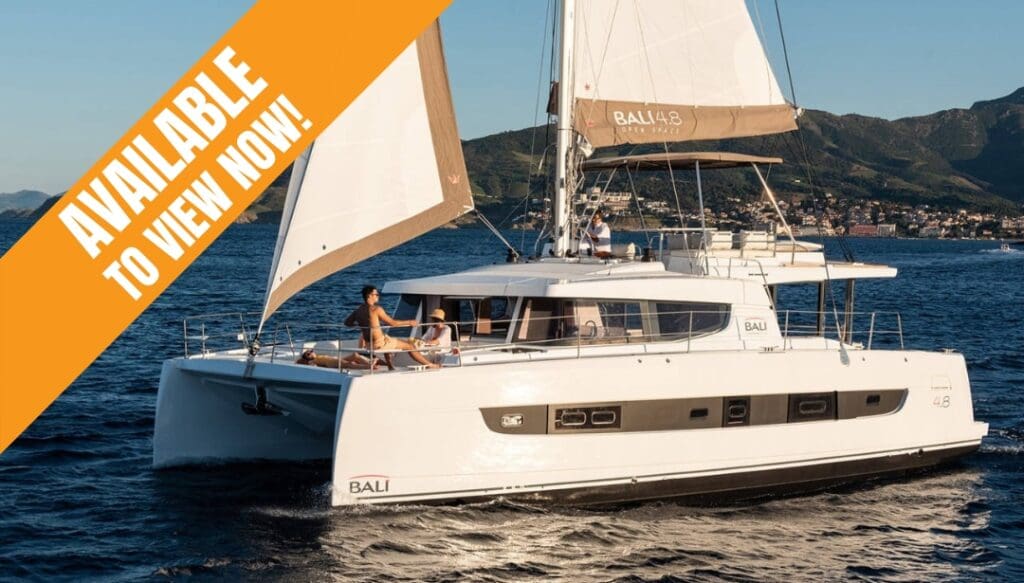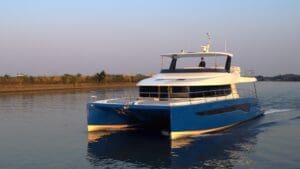
The US Government announced comprehensive tariffs, which includes a 20 percent reciprocal tariff on exports to the US from the European Union (EU) and of course even higher tariffs on China and South Africa.
In the boating industry, particularly the catamaran market, these tariffs have sparked widespread discussion and speculation. While some anticipate a significant impact on the industry, it’s more likely that the effects will be more nuanced.
Vessels with U.S. import duties already paid, will be more desirable and may see a modest premium, but not the substantial 20–30% increase some predict. The market may not bear such an increase on the already high cost of catamarans. We think that the market dynamics and other economic factors are expected to temper a substantial increase in prices. Stephen Cockcroft says: “The full impact of the tariffs will take time to emerge as markets adjust. We are far from a clear resolution”.
We have already seen the effect on the industry due to uncertainty and volatility and tariffs will no doubt add to that. Some U.S. buyers have temporarily put their new yacht purchases on hold to assess the situation and wait for the markets to stabilize. However, despite the introduction of new tariffs, some sectors of yacht ownership for US buyers will remain unaffected, particularly our boat owners with yachts operating as businesses and in luxury crewed and bareboat charter in the Caribbean and Bahamas which is an area that Catamaran Guru specializes in. “These yachts will continue to be US flagged but not imported into the US since they are operating in foreign waters which are generally tax free jurisdictions,” added Stephen Cockcroft.
That said, buyers should be prepared for a potential price increase of 10 to 20 percent if the foreign built yacht is improted into the U.S., which was not accounted for earlier. Furthermore, those who ordered a yacht a few years ago and are now ready to take delivery might encounter unexpected costs due to these tariffs, if the boat is imported into the U.S.
For American buyers considering international yacht purchases, these tariffs may influence decisions regarding vessel usage and registration. U.S. buyers might explore options like foreign flagging their vessels or adjusting cruising plans to optimize tax and duty implications, similar to Canadian buyers who currently register their boats in Canada but keep them in the Caribbean or Florida to avoid higher provincial taxes.
Sellers with boats that has not U.S. import duty paid, might reconsider their sales strategies, and decide where and how they will market the yacht for sale from here on by locating them offshore. Traditionally, importing and marketing vessels in Florida was most advantageous due to its robust yacht market. It is easy for people to fly to and visit a huge variety of yachts for sale in one place in Florida. However, with the new tariffs, we might see more boats going to market in locations like St Thomas, BVI, St Martin or Grenada.
This is nothing new for us and we already have locations to help buyers and sellers in St Thomas and the BVI where we sell a number of catamarans every year.
It’s crucial for buyers and sellers to stay informed about these evolving trade policies. Consulting with industry experts can provide clarity on how these changes may affect purchasing decisions and operational strategies. As the situation develops, we’ll continue to monitor and provide updates to ensure our community remains well-informed.
-
General Rule for Importation of yachts into the U.S.:
Generally, when a US-flagged vessel enters into the U.S., duty and importation tax is required to be paid.
-
Potential Exemptions:
There used to be specific circumstances or programs that allowed for duty-free entry, of new boats but these would have been exceptions, not the rule, i.e. Leopard or Voyage Catamarans built in South Africa which were exempt from duty under AGOA (Africa Growth and Opportunities Act) in the HS Tariff codes which lists Yachts HS Code 8903.91.0035 as Free duty under AGOA.
-
Foreign Flagging:
One way to potentially avoid paying US duty on a boat is by foreign flagging the vessel, which involves creating a corporation and registering the boat under that corporation’s name in a foreign country. These corporations are more expensive to maintain annually but is indeed a way to avoid tax.
-
Cruising Permits:
Foreign flagging can also enable you to obtain a cruising permit during your time in US waters, which can be beneficial if you only plan to cruise in US waters occasionally and eventually sell the boat offshore.
-
Duty Rates:
The duty rates for boats can vary, with powerboats and sailboats typically having a 1.5% duty rate, while outboard powerboats have a 1% rate but have been replaced by the new tariff structure until further notice.
While this is our current understanding, there is a lot of negotiating going on and we have simply no idea what the final outcome will be. Given the current political situation globally and ongoing negotiations between nations, time will tell what these tariffs end up being
New Catamarans For Sale - Import Duties Paid
Take a look at our Inventory NEW BALI Catamarans for sale currently at our showroom in Annapolis location, available to be viewed during our Open House April 26 & 27.







